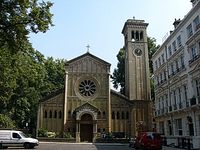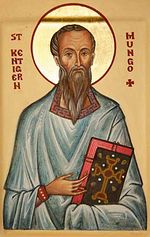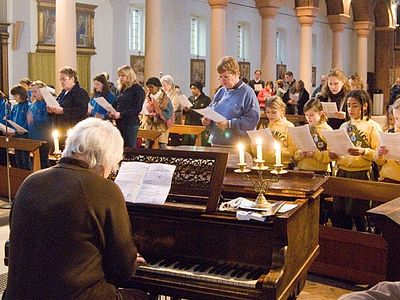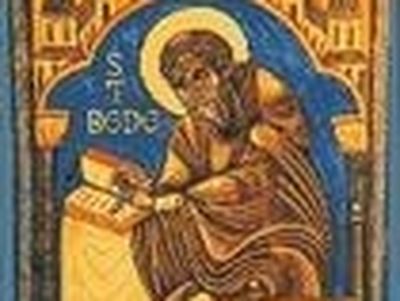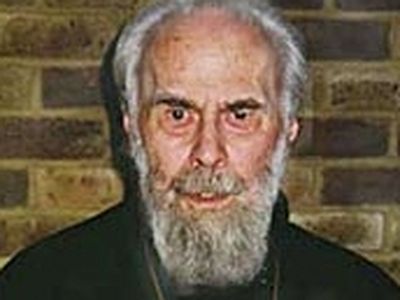
- Russian oligarchs and elite have chosen England as a favorite place of residence. How actively do they participate in the life of your parish and diocese? Do you remember having problems with Russian law-enforcement agencies, taking into account that Russian police are waiting for some London parishioners with handcuffs?
- I think you're exaggerating... Certainly, quite different people participate in life of our large parish, but I personally don't ask them anything except their name when they come to confess. Some people want to tell the priest about their life and problems, but it happens only when they confide in the priest. I can't say for sure how many "elite" parishioners visit our services, but based on general assumptions, there should be some. However, such parishioners don't usually show off, and our idea of who is who at our parish are very vague.
Besides, London is a very big city. I am reminded of villagers after the Soviet revolution who used to ask their fellow villager on his return from the capital: "Been to Moscow? Seen Lenin?" Now I'm in a similar situation. People always ask me about oligarchs. All for nothing. The recent tour of the Bolshoi Theatre, however, extended our "elite" flock for some time. Actors came to the service, communed, and prayed.
- How does the Orthodox flock in Britain differ from the parishioners of an average Russian church?
- The parishioners indeed differ from Moscow and average Russian believers. Emigrants differ in their temperament and inner perception of the world from people who live in their home country. They are more active, industrious and sometimes even more aggressive. They focus on achieving success, they don't want to sit and wait; they choose to act quickly, energetically, immediately. That is why they left their country, searching for a better life. It's a kind of artificial selection. It's not so easy to communicate with such people. They have a high opinion of themselves, they don't like to waste time, and therefore they need some other forms of pastoral care than what they get in Russia.
- Tougher?
- Sometimes, yes, but in some cases quite the contrary. The general culture of interaction and behavior in England differs from rules accepted in Russia. English people are champions of everyday courtesy and polite forms of speech. These qualities are assimilated by Russians and other immigrants from the former Soviet Union.
But make no mistake: the form of communication [in England] is more polite and tactful, but the core of it is far from being so; at any rate, it is more concrete. They don't open their hearts even to close friends. The question "how do you do?" is used to greet each other, but don't assume it is an invitation to real talk about the problems bothering you. However, if you accidentally push someone on the street, you should do your best to be the first who says "sorry" as there's race of excuses, no matter who the pusher was.
- In what other ways does your flock differ?
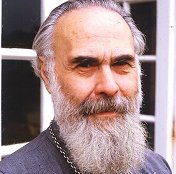 Met. Anthony of Sourozh
Met. Anthony of Sourozh
It is important that people here are extremely varied, as opposed even to Moscow, which can by no means be accused of monotony. People come to London from everywhere; the majority [of our parishioners] are not from central, mainland Russia, but from the republics of the former Soviet Union, especially from those republics that have joined the European Union. For example, people from the Baltic States have the right to work here, while Russian, Ukrainian, and Byelorussian citizens do not. Many Moldavians have Romanian citizenship, which also simplifies their move to the British Isles. Besides these, Orthodox Poles, Slovenians, Serbs, Bulgarians, and, of course, English people participate in the Services.
Therefore it is understandable that Church traditions which are observed in Russia are by far not always accepted at English parishes, and are not something not subject to question. This has to be taken into consideration.
- Which, for example?
- Well, for example, the traditions surrounding Baptism. Sometimes people look with some perplexity at a Moldavian couple who bring there child for Baptism, and the child has ten or more godparents. That is their custom. Serbs and Bulgarian children are not named strictly after saints, and therefore they have no name day in the sense that we are used to. There are many local traditions surrounding the Sacrament of marriage.
The tradition of confession differs. People who have come from different places begin their confession in various ways: some repeat a “formula” before they start, a few obligatory words, and place two fingers on the Gospels. If they do not repeat this formula they feel unsure of themselves, and even accuse the priest of not allowing them to observe an important part of their confession.
Greeks and Serbs do not have obligatory confession each time before receiving Communion, and during Metropolitan Anthony’s time it was also not mandatory, although he called upon people to observe the tradition. He allowed this practice during the time when the parish was comparatively small, and he knew everyone: he knew who needed confession right away, and who he could commune without it. Then the parish grew, and the habit remained, although today things are returning to the Central Russian norm.
The various approaches to Church life are encouraged by the fact that there are other Orthodox Churches here that people can go to. I repeat—this practice of representatives of other local Orthodox Churches here sometimes greatly differs from our own. Thus, there are very many traditions; some surprising, some edifying, while others must simply be quietly endured.
- And what about the appearance of your parishioners? Does their manner of dress differ from that of parishioners in Russia?
- I can only speak for our parish; here we face the same tendencies as in Russia. The things considered impossible become acceptable. For example, a woman in trousers. I remember there was a time when women in trousers were not allowed into the church in Russia, and there still are some churches that would not let her in.
Our parish doesn't practice expelling such women. You'd better not try to kick out some of them! Our parishioners have various opinions on the question, and they actively share their thoughts with us.
Advocates of a strict manner of dress want women to cover their heads and not wear trousers. Sometimes they are not newly arrived people, but newly converted Englishmen, who came to the Russian Orthodox Church because they lacked such healthy conservatism in the Church of England.
One Englishman, a member of our parish, was outraged when
journalists accused newly arrived Russians of Puritanism
and extreme strictness. The media alleged that we make all
women cover their heads, while in England this is
associated with Islam and not with Christianity. This
Englishman assured them that it was he, not mythical
Russian Orthodox believers, who demanded that women cover
their heads. He was fed up with liberalism in the Anglican
Church, and converting to the more conservative Orthodox
Church, he wanted it to remain conservative, in the good
sense.
- Why don’t you insist that women wear
headscarves?
- We rarely insist that anyone do anything. Archbishop Elisei, the head of the Surouzh diocese and rector of the cathedral, has been serving abroad for a long time, and has much experience in using methods of persuasion, instilling a love for tradition; for tradition is an important part of our Orthodox witness, even outside of Russia.
- By the way, are there many English people who come to the Orthodox Church from the Anglican Church?
- I wouldn't say there are many of them, but they make up a significant part of our flock in London, and especially outside of London. The majority of diocesan priests outside of London are Englishmen. Services are celebrated in English with only some exclamations in Church Slavonic, and the priests in some parishes know very little Russian.
Certainly, the majority of them are people who married Orthodox Russians, Ukrainians, Serbs, and so on. This step—to adopt Orthodoxy—was natural for them. First, they came here because they wanted to share interests of their beloved, then they became keen on it and adopted Orthodoxy.
Some Englishmen have consciously chosen the Russian Church. Metropolitan Anthony said that of all Orthodox Churches represented in England, the Russian Orthodox Church gives maximum freedom to newcomers. For example, Greeks coming here position themselves not as just Orthodox, but as Orthodox Greeks; services are celebrated only in Greek. The Russian Orthodox Church celebrates the services both in Slavonic and English even in the cathedral, and in some parishes the English language prevails.
- What attracts the English in Orthodoxy? Is it the conservatism which they fail to find in the Church of England, or anything else?
- Certainly they are attracted by the positive component of the Orthodox teaching, Metropolitan Anthony stressed that Orthodoxy is a return to yourself, to the faith of the ancient undivided Church that existed on the territory of England for many centuries.
However, processes developing in the Church of England give impulse to search for a new religious foundation of life. Female priests and bishops, homosexual marriages and ordination of people who promote "non traditional sexual orientation" bother many believers. Some of those who can't accept it just put up with it, others leave the Church—it is not by chance that England today is a very secular country; some people search for something new and come to the Russian Church to find themselves in it.
- If I get it right, Anglicanism is closer to Orthodoxy than it is to Catholicism. There was the Oxford movement in the early 20th century that stood for uniting with Orthodoxy...
- There were attempts made by Orthodox believers who were forced out of Russia to get closer with the Anglican Church. For example, Fr. Sergy Bulgakov was searching for meeting points with Anglicans. Renowned Orthodox activists such as Nikolay Zernov were enthusiasts of restoring Church unity. Zernov was a founder of the English-Russian fellowship of St. Alban and St. Sergius, and today the fellowship is still active. A lot of interesting things have been done. Orthodoxy appears more comprehensible and close to many English people.
Unfortunately, today the Anglican Church has changed its teaching and practice.
- Is it true that Prince Charles attended a service? Do you think there's a real interest in Orthodoxy in the royal family?
- I wasn't here then, but there are people who saw him come in. Our parishioner, who then worked for the royal family, told me about it. It happened when Metropolitan Anthony was alive, during Passion Week. It is known that Prince Charles visited the Mount Athos, and shows interest in Orthodoxy. However, he has a wide circle of interests and visits various places. I wouldn't pay much attention to it. By the way, monarchs here are heads of the Anglican Church, so the modern principle of religious freedom is not for them.
This holds true not only for the monarch, but also for the Prime Minister, upon whom depends, according to tradition, the choice of a new bishop of Canterbury. If a prime minister confesses another religion, a legal conflict arises, if not ethical. Tony Blair was a Catholic for a long time according to his personal conviction, but only after his retirement could he go to the Pope of Rome to officially become Catholic.
- By far not every Russian diocese has its own regular periodical. Your diocese has its own. Tell us a little about this publication and its history.
- This year this periodical, Sourozh, will be thirty years old. The magazine is fairly well known not only in the Sourozh diocese, but even outside of it. It is a missionary journal, since amongst its subscribers are universities, and schools—not all of which are Orthodox—libraries of religious literature, monasteries. This is a unique English language publication.
I think that not a single diocese inside Russia, for understandable reasons, can boast of such a long existence: thirty years—that is a serious longevity. Sourozh was created at the blessing of Metropolitan Anthony in 1980, during the most turgid period of the Soviet Union. It immediately began to be published in English, and won great popularity. It mostly consisted of re-printed and translated articles that were published in Russia and in Orthodox publications abroad; edited reports were published of Orthodox activists at various conferences, as well as the sermons of Met. Anthony himself.
Nevertheless, the periodical was interrupted for a few years, and when at Vladyka Elisei’s blessing we took up its restoration, it seemed to us that we needed to do it on a new level, on a new base. Truly, it is now unrecognizable: mostly original articles are being published, but also in English. The articles describe Church life in Russia, the life of the Sourozh diocese, and about serious questions of Orthodoxy, especially relevant to people living abroad; about the cooperation of English and Russian within Orthodoxy, in the Sourozh diocese, and about the history of inter-Orthodox contacts. Every time we open something new not only for the readers, but also for ourselves. There are a surprising number of personalities who link England and Russia, specifically along the lines of Orthodoxy. The lead article of the last issue was dedicated to Grand Duchess Elizaveta Feodorovna, who was the granddaughter of Queen Victoria, and who, without losing her Englishness, was absolutely Russian; moreover, she is a Russian saint.
- Is the periodical distributed by subscription only?
- Both by subscription and retail sales.
- What is the print run?
- It is not large, but we hope it will grow. Of course, for understandable reasons, the print run of an English language periodical of the Russian Orthodox Church abroad can by no means be compared with that of any periodical inside Russia. The most important thing for us is that there are collective subscribers—libraries, serious institutions; that is, anyone who wants to read it can come and see it.
- Juvenile justice flourishes in the Great
Britain. Do your parishioners fall victim to abuses
connected with it?
- The content of the term, “Juvenile Justice”
differs from country to country. I would advise not to
fixate upon the names. More important is what is meant by
those people who use it.
- Certainly, the things I see in England bother me a lot.
I have a feeling that local experts, parents, and teachers
share my anxiety. Modesty, obedience, respect for parents
are passing away. Teens' behavior is provocative
because they know that no one will dare to mess around.
It's quite routine for them to call the police and
complain of a parents' smack, even if it was
deserved.
At the same time, children are still very vulnerable.
England recently faced a terrible incident when a baby was
systematically beaten by his adopted father, and social
workers who were guided by juvenile justice didn’t
notice anything, even though they visited the family many
times. The last time a social worker and a doctor came,
the boy’s ribs and spine were broken, and he was
covered with chocolate to hide the bruises. However, they
still saw nothing. The boy died without help.
Question: What will happen in Russia? Will the new juvenile politics save even some number of children from actually existing, outrageous incidents of abuse and violence? Or will these incidents be ignored as they were before, while the apparatus itself enables new Pavel Morozovs [a Soviet child “hero” who had his anti-soviet parents executed—PR/OC], who will report on their parents, and it could become impossible to take, for instance, a capricious child to church.
Some children, for example, will be difficult to commune. Juvenile politics are like this: if a child shows displeasure or cries, it means that he must be immediately taken out of the church, or it will be like“forcing.” Or Baptism, for example. If an infant sees unfamiliar surroundings and begins to fuss, then he will have to be brought another time, even at the cost of interrupting the Baptism.
I believe that today Russia has every possibility to
protect children from violence according to the
law—it is only necessary to apply the law
properly.
We can invent new laws to see that they don't work
because people don't properly use them. At the same
time, these laws can become a repressive instrument
against "extremely religious" parents—and
this worries me very much.
- What are the main problems in English parishes?
- There are many problems, but they are characteristic of all the foreign parishes of the Russian Orthodox Church. First of all, there are few of us, and our flock is dispersed. Even those people who have lived a long time in London, who come to us for the first time, sometimes say that “an acquaintance brought them,” although there is information on the internet and in Russian language papers. And this is the most well known parish in all of Great Britain! That is, there is a problem with information.
There are complexities connected with the fact that people live very far from their parishes. Hundreds of thousands of Orthodox people live in and around London, but they have to travel far, and may not get to church on time. In spite of the opinion that there is good transportation in the West, in England they are continually repairing something and closing it down, especially on Saturdays and Sundays.
Of course, there are many problems in new parishes, which cannot provide the priest with an apartment or give him money to live on. A priest in such a parish is a podvizhnik. Most of his parishioners are, by local standards, living below the poverty line and are not able to make any monetary contributions—to the contrary, they themselves need help.
At the same time, people have a need for a priest, a need to be at the Services; they are sometimes amazing examples of self-denial: they give their last drop in order to help the church build an iconostasis, rent a place for Services, shelter the priest, who comes from miles away just to serve one Liturgy.
Some of our priests work at secular jobs, others receive pensions, and have thus found a way out of the situation.
- In the first centuries of Christianity in England there were many saints of the undivided Church who preached; there are many places there that the Russian pilgrim does not know about. Are there plans for special pilgrimage routes for Orthodox people to follow?
- I have to say that during the time the Church of England was forming, the general mood was very strong against any sort of Christian relics. For example, the relics of saint Kentigern, the patron saint of Glasgow, and the relics of the first English martyr, Alban, were destroyed or lost. Therefore, the scene of general Christian reliquaries of England is basically a desert. Naturally there are places that are connected with the name of one or another saint, one or another icon of the Mother of God, there are places of the martyrs or holy hierarchs of that era, but they exist only on the map, and not as a place where you can go and pray at the relics or venerate them as we are accustomed to doing on a pilgrimage.
Nevertheless, we in England make pilgrimages and walk along these places. Only recently Archbishop Elisei led a pilgrimage to the town of St. Albans, which is named after the martyr Alban. In the former monastery there the reliquary that held his relics was miraculously preserved. For us, the Orthodox in England, this is very important in the spiritual sense; but if you are talking about tourists and pilgrims from abroad, I am afraid that they will not find anything very impressive in the visual sense, especially compared to the riches that exist in Russia or other Orthodox countries…
Translated by Interfax and Pravoslavie.ru/OrthoChristian.com
